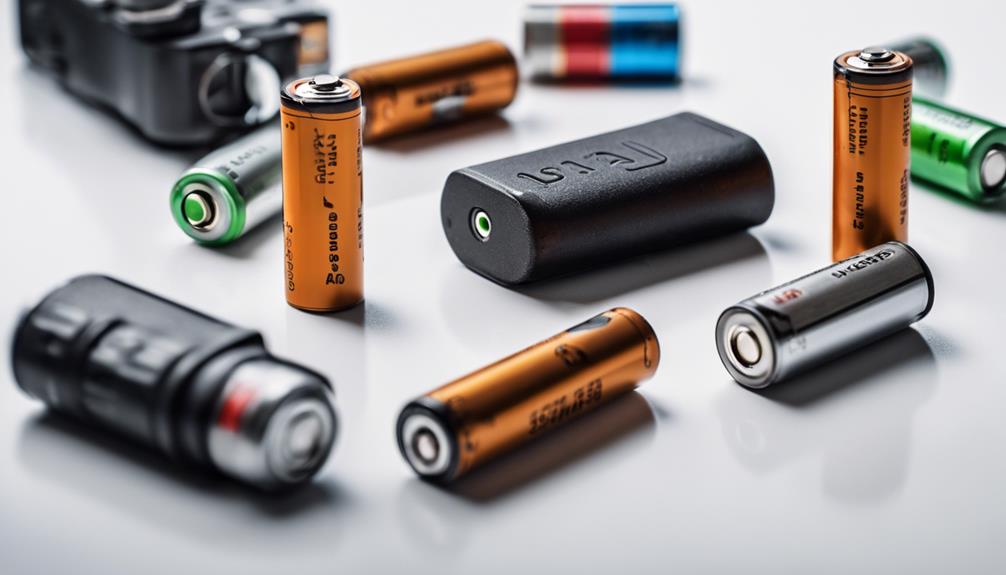Choose Alkaline for long-lasting spy camera power. Lithium excels in energy density and lifespan. Rechargeable is both eco-friendly and cost-effective. Button Cell offers compact reliability. NiMH balances density and reusability. AAA guarantees reliable yet frequent replacements. CR2 combines compactness with voltage stability. 9V grants enduring power output. Each battery type caters to specific needs, from longevity to eco-consciousness.
Alkaline Batteries
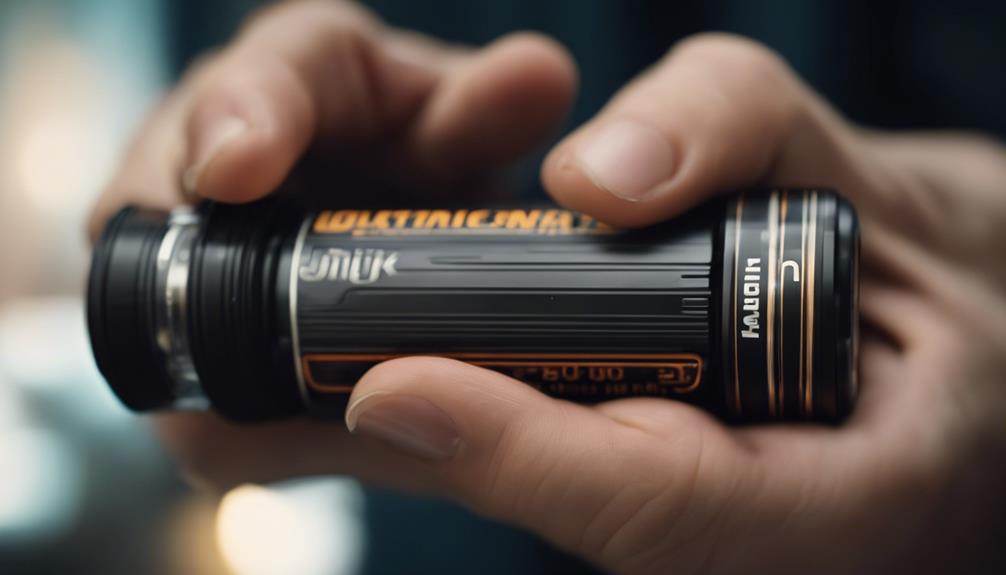
Alkaline batteries are widely used in spy cameras due to their long-lasting power and reliability. These batteries offer a significant advantage when it comes to battery life, making them ideal for surveillance applications where continuous power is essential.
The average lifespan of alkaline batteries in spy cameras can range from several weeks to months, depending on usage and camera specifications.
When considering the environmental impact of alkaline batteries, it's essential to note that they aren't rechargeable and are meant for single-use. As a result, the disposal of alkaline batteries can contribute to electronic waste concerns.
However, alkaline batteries are generally considered less harmful to the environment compared to other types of batteries, such as lithium-ion batteries, as they don't contain heavy metals like cadmium or mercury.
Lithium Batteries
In spy cameras, lithium batteries are known for their high energy density and long-lasting performance. The advantages of lithium batteries in spy cameras include their lightweight design, high energy density, and ability to hold a charge for extended periods. This makes them ideal for long-term surveillance operations where changing batteries frequently isn't feasible.
Additionally, lithium batteries have a low self-discharge rate, meaning they retain power when not in use better than other battery types. However, there are some disadvantages to take into account. Lithium batteries can be more expensive upfront compared to other options, and they require special handling and disposal due to their chemical composition.
When it comes to lifespan and performance in spy cameras, lithium batteries typically outlast alkaline batteries and provide more consistent power output throughout their usage. This reliability is essential in surveillance situations where uninterrupted power is vital for capturing crucial footage.
Rechargeable Batteries
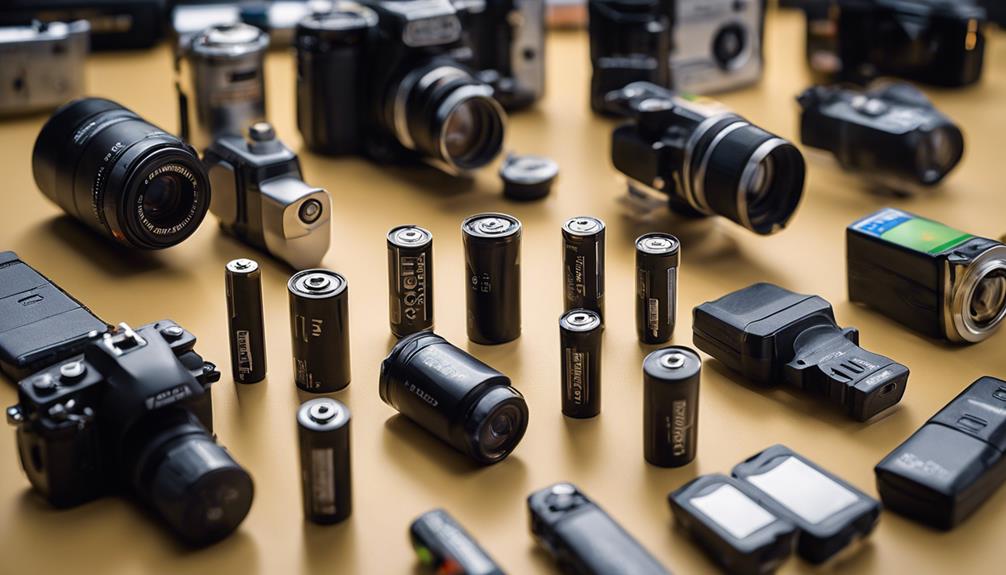
To start with, it's important to take into account the advantages and disadvantages of using rechargeable batteries in spy cameras. Rechargeable batteries offer a cost-effective and environmentally friendly power solution for spy cameras, allowing for repeated use after recharging.
The benefits of using rechargeable batteries in spy cameras are numerous. They're more economical in the long run compared to single-use batteries, as you can recharge them hundreds of times, reducing waste and being more sustainable. Additionally, rechargeable batteries tend to have a higher energy capacity, providing longer operating times for spy cameras before needing a recharge. They also perform better in high-drain devices like spy cameras, making them a reliable choice for continuous use.
However, there are some disadvantages to take into consideration. Rechargeable batteries can lose their capacity over time, especially if not used regularly. This means they may not hold as much charge after a certain number of recharging cycles. Additionally, rechargeable batteries typically have a higher initial cost compared to single-use batteries, which can be a deterrent for some users.
Despite these drawbacks, the benefits of cost-effectiveness and sustainability make rechargeable batteries a popular choice for powering spy cameras.
Button Cell Batteries
When selecting batteries for your spy camera, button cell batteries are a common choice due to their compact size and reliable power output. These small, round batteries come in various sizes and are commonly used in devices that require low power consumption like watches, calculators, and of course, spy cameras. Button cell batteries offer a decent battery life, lasting anywhere from a few months to a couple of years depending on usage frequency and the power requirements of your camera.
To guarantee top performance from your button cell batteries, it's essential to follow some maintenance tips.
To start with, make sure to store your batteries in a cool, dry place at room temperature to prevent them from losing power quickly.
Additionally, if your spy camera isn't in use for an extended period, it's advisable to remove the batteries to avoid leakage and potential damage to your device.
NiMH Batteries
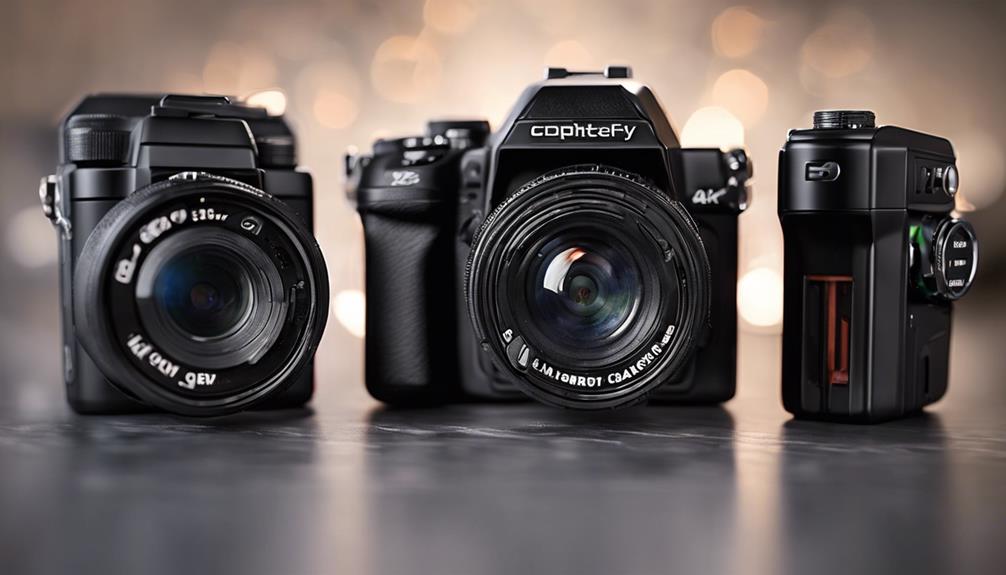
NiMH batteries are known for their high energy density and rechargeable capabilities, making them a popular choice for powering spy cameras efficiently. These batteries have a longer lifespan compared to traditional alkaline batteries, making them a cost-effective option for continuous surveillance needs. The average NiMH battery lifespan ranges from 500 to 1000 charge cycles, ensuring prolonged usage before requiring replacement.
When considering the environmental impact, NiMH batteries are a more sustainable choice than single-use alkaline batteries. Their rechargeable nature reduces the number of batteries being disposed of, decreasing the overall electronic waste generated.
Additionally, NiMH batteries don't contain toxic metals like cadmium, which is commonly found in older rechargeable batteries, further minimizing their environmental footprint.
CR123A Batteries
With high energy density and a reputation for reliability, CR123A batteries are a common power source for spy cameras due to their long-lasting performance. These batteries offer excellent battery life, making them ideal for extended surveillance operations. Their compatibility with a wide range of spy camera models ensures seamless integration without the need for frequent replacements.
CR123A batteries provide a consistent power output, essential for maintaining the functionality of spy cameras round the clock. This steady power supply guarantees uninterrupted surveillance, capturing important footage without disruptions. Their durability is another key feature, capable of withstanding various environmental conditions, including temperature fluctuations and humidity levels commonly encountered in surveillance scenarios.
When selecting a power source for your spy camera, consider the advantages of CR123A batteries in terms of battery life, power output, compatibility, and durability. These factors are essential for ensuring that your spy camera operates efficiently, delivering reliable performance when you need it most.
AA Batteries
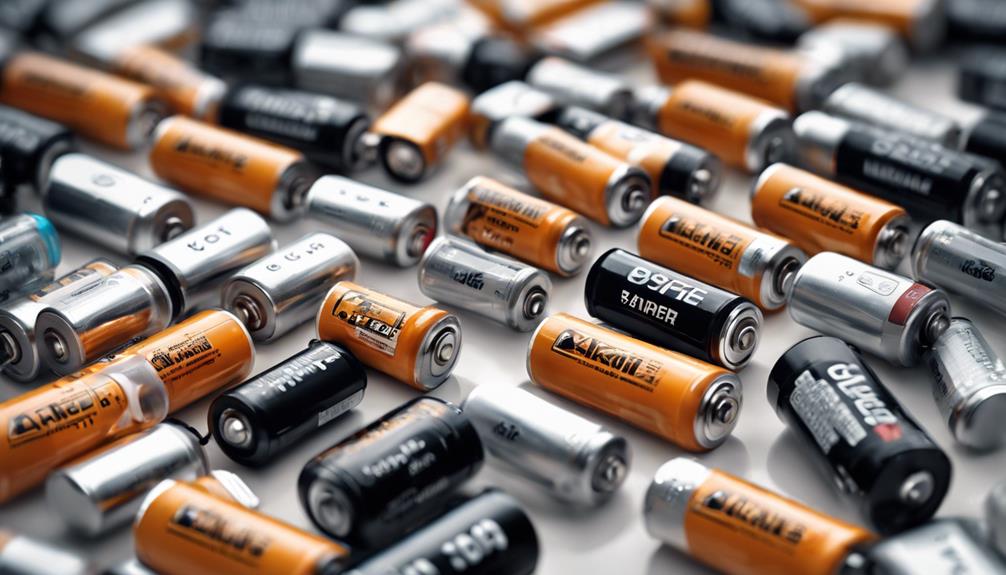
Utilizing AA batteries as a versatile power source for spy cameras guarantees consistent performance and ease of maintenance. AA batteries are widely available and come in various chemistries, including alkaline, lithium, and rechargeable nickel-metal hydride (NiMH). When selecting AA batteries for your spy camera, consider the battery lifespan and compatibility to ensure peak performance.
The battery lifespan of AA batteries varies depending on the type and brand. Alkaline AA batteries typically last between 2 to 6 months in a spy camera, while lithium AA batteries can provide extended usage of up to 1 year. Rechargeable NiMH AA batteries offer a cost-effective and environmentally friendly option, with a lifespan of approximately 500 to 1000 charge cycles.
Make sure that the spy camera you choose is compatible with AA batteries. Some spy cameras may require a specific voltage or battery chemistry for proper functioning. Always refer to the camera's manual to determine the correct AA battery type and compatibility to avoid damaging the device.
AAA Batteries
Considered a smaller and lighter alternative to AA batteries, AAA batteries offer a compact power source for spy cameras with specific size requirements and constraints. When it comes to spy cameras, AAA batteries are a popular choice due to their portability and ease of use. Despite their smaller size, AAA batteries can still provide sufficient power to keep your spy camera operational for extended periods.
In terms of battery longevity, AAA batteries typically have a lower capacity compared to AA batteries. This means that they may need to be replaced more frequently, especially if your spy camera is in constant use. However, advancements in battery technology have led to improvements in the longevity of AAA batteries, allowing them to last longer than before.
When it comes to battery performance, AAA batteries can deliver reliable power to your spy camera, ensuring consistent operation. It's important to choose high-quality AAA batteries to optimize the performance of your spy camera and avoid unexpected power failures.
With proper care and monitoring, AAA batteries can effectively meet the power demands of your spy camera.
CR2 Batteries
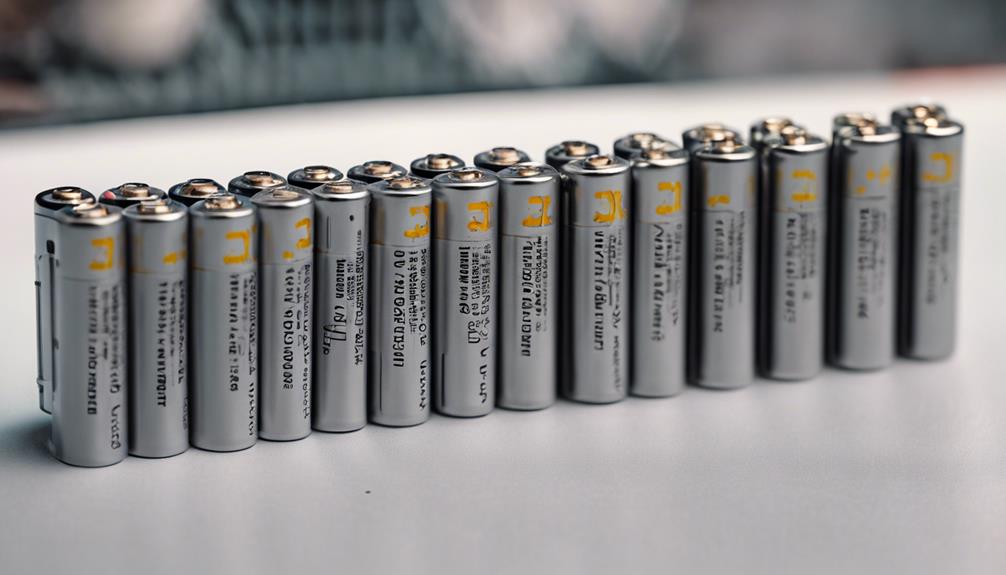
CR2 batteries are commonly used in spy cameras due to their compact size and reliable power output. These lithium batteries have a nominal voltage of 3 volts, making them ideal for devices that require a stable power supply. The CR2 battery life typically ranges from 1 to 3 years, depending on usage and storage conditions.
The voltage of a CR2 battery remains consistent throughout its lifespan, providing a steady power source for spy cameras to operate efficiently. It's important to monitor the battery life and replace CR2 batteries promptly to maintain uninterrupted surveillance.
When selecting CR2 batteries for your spy camera, consider factors such as brand reputation and shelf life to maximize performance. Always follow manufacturer recommendations for battery replacement to sustain the optimal functioning of your device.
With their small size and reliable power output, CR2 batteries are a popular choice for powering spy cameras in various surveillance applications.
9V Batteries
V batteries are commonly utilized in spy cameras for their reliable power supply and long-lasting performance. These batteries, also known as 9-volt batteries, offer a good balance between size and power output, making them a popular choice for various electronic devices, including spy cameras.
When it comes to battery life, V batteries have a decent capacity that can support extended use of spy cameras without the need for frequent replacements.
In terms of performance, V batteries provide a stable voltage output, guaranteeing consistent power delivery to the spy camera for peak functionality. Additionally, these batteries are designed to handle the power demands of spy cameras efficiently, resulting in dependable operation.
When it comes to charging options, V batteries are typically not rechargeable and are meant to be replaced once depleted. It's essential to use compatible V batteries with the specific spy camera model to ensure proper functioning and avoid any damage to the device.
Conclusion
To sum up, when selecting a battery for your spy camera, take into account factors such as battery life, power output, and convenience.
Alkaline batteries are reliable and widely available, while lithium batteries offer longer life and better performance. Rechargeable batteries are cost-effective and environmentally friendly. Button cell batteries are compact and ideal for small devices. NiMH batteries provide a balance of performance and convenience.
Choose the right battery type based on your specific needs and preferences.
